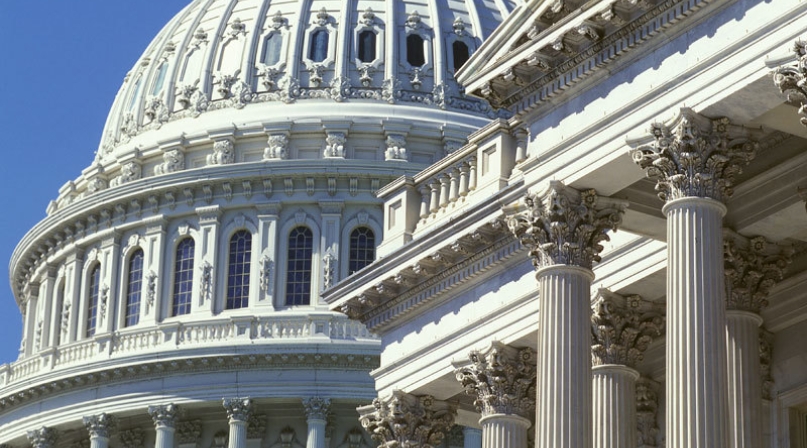U.S. House passes rescissions package
Author

Owen Hart
Upcoming Events
Related News

Key Takeaways
On June 12, the U.S. House of Representatives passed the Rescissions Act of 2025 (H.R. 4) in a narrow 214-212 vote. The legislation would cancel $9.4 billion in previously approved federal funding, marking the Trump Administration’s first formal attempt to codify funding cuts proposed by the Department of Government Efficiency (DOGE).
Key provisions: what’s in the rescissions package?
The Rescissions Act of 2025 (H.R. 4) would cancel funds already appropriated in previous spending laws, including unobligated balances from the FY 2024 appropriations bill and the FY 2025 full-year continuing resolution. These rescissions include:
Cuts to international aid programs ($8.3 billion)
- Global health programs: $900 million cut from U.S. Agency for International Development (USAID) and State Department-administered global health programs
- U.N. peacekeeping and international organizations: $563 million in total rescinded from contributions to the United Nations and other international bodies
- State Department migration and refugee assistance: $800 million rescinded
- Development Assistance & Economic Support Fund: $4.2 billion rescinded
- Democracy Fund, Complex Crises Fund and international disaster assistance: $550 million rescinded
- Multilateral assistance for clean energy development: $561 million rescinded from funds like the Clean Technology Fund and international climate programs
Elimination of public broadcasting funding ($1.1 billion)
- Corporation for Public Broadcasting (CPB): The bill eliminates FY 2026 and FY 2027 funding for the CPB, which supports NPR and PBS affiliates nationwide. The cuts follow a May 2025 executive order from President Trump directing an end to CPB funding, citing concerns about media bias.
How would counties be impacted?
Counties are particularly concerned with the proposed elimination of public broadcasting funding. Local public radio stations supported by federal public broadcasting funding play an outsized role in counties, particularly rural ones, in two major areas:
- Emergency communications: Public radio is a critical component of emergency response infrastructure, particularly when power, internet or cellular networks are disrupted. Many county emergency managers rely on public radio to transmit real-time alerts across regional networks. Without federal support, many of these systems may become unreliable.
- Community and economic development: Public broadcasting supports local community building, civic engagement and small business promotion, especially in communities underserved by private media. Loss of CPB funding could lead to the consolidation or closure of local stations, weakening a key pillar of the community fabric of rural counties.
What comes next?
With the House’s passage of H.R. 4, the package now heads to the Senate. However, Senate leaders have signaled that they will likely wait to consider the bill until after completing work on the budget reconciliation package, the One Big Beautiful Bill Act (H.R. 1). NACo will continue monitoring the implications of these cuts on local governments.
Related News

County leadership guides shared prosperity
There’s no chicken-or-egg debate: Economic mobility is not just a byproduct of growth — it is the result of intentional county governance.

Inland port offers opportunity for Hertford County, N.C.
Hertford County, N.C. doesn’t have a lighthouse, but that hasn’t stopped its economic future from shining thanks to what became known as Project Green Lantern.
Advocacy
U.S. House passes reconciliation bill: What it means for counties
Counties should continue to advocate for county priorities to be included in the final budget reconciliation bill.

